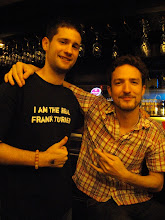There is a very strong temptation...for government forces to act outside the law, the excuses being that the processes of law are too cumbersome, that the normal safeguards in the law for the individual are not designed for an insurgency and that a terrorist deserves to be treated as an outlaw anyway. Not only is this morally wrong, but, over a period, it will create more practical difficulties for a goverment than it solves. A government which does not act in accordance with the law foreits the right to be called a government and cannot expect its people to obey the law. Functioning in accordance with the law is a very small price to pay in return for the advantage of being the government.
-- Sir Robert Grainger Ker Thompson, Defeating Communist Insurgency: Experiences from Malaya and Vietnam (1966)
The Nazis and Fascists were convinced that they were, as an admiring Anne Morrow Lindbergh called them, 'the wave of the future.' To celebrities from the West the societies created by the Duce and the Fuhrer were impressive. They seemed efficient. There were no strikes, no demonstrations, no disrespect for authority. The Gleichschaltung – political coordination and the elimination of opponents – of Hitler’s new order meant more productive assembly lines, organized holidays for workers, and an inspired patriotic youth…The young were the most ardent Nazis, but enthusiasm for the regime was found among Germans of every age and on every social level. They had always been a regimented people, and did not seem to mind the loss of personal freedom. They rallied to the slogans “Gemeinnutz vor Eigennutz” (“The Common Interest before Self-interest”) and “Kanonen statt Butter” (“Guns instead of Butter”). Those who preferred liberty and butter absconded or remained silent. In the Third Reich Gleichschaltung wasn’t for everybody, just everybody who wanted to live.
--The Last Lion: Alone 1932 – 1940 P. 506
Law arms the weaker, when the cause is just.
--The Theban Play P. 98

No comments:
Post a Comment